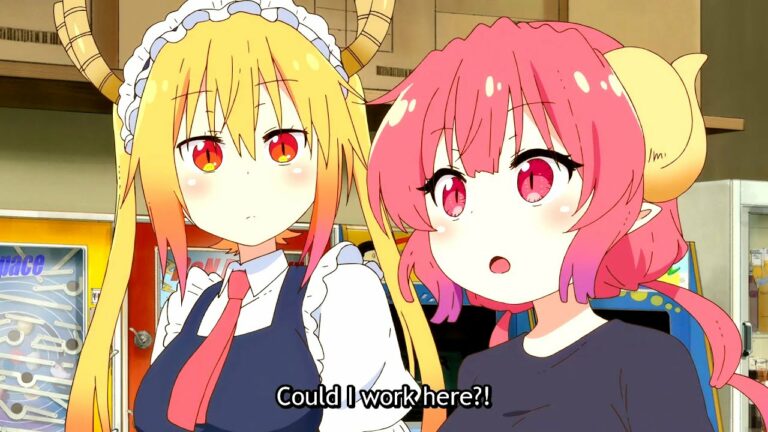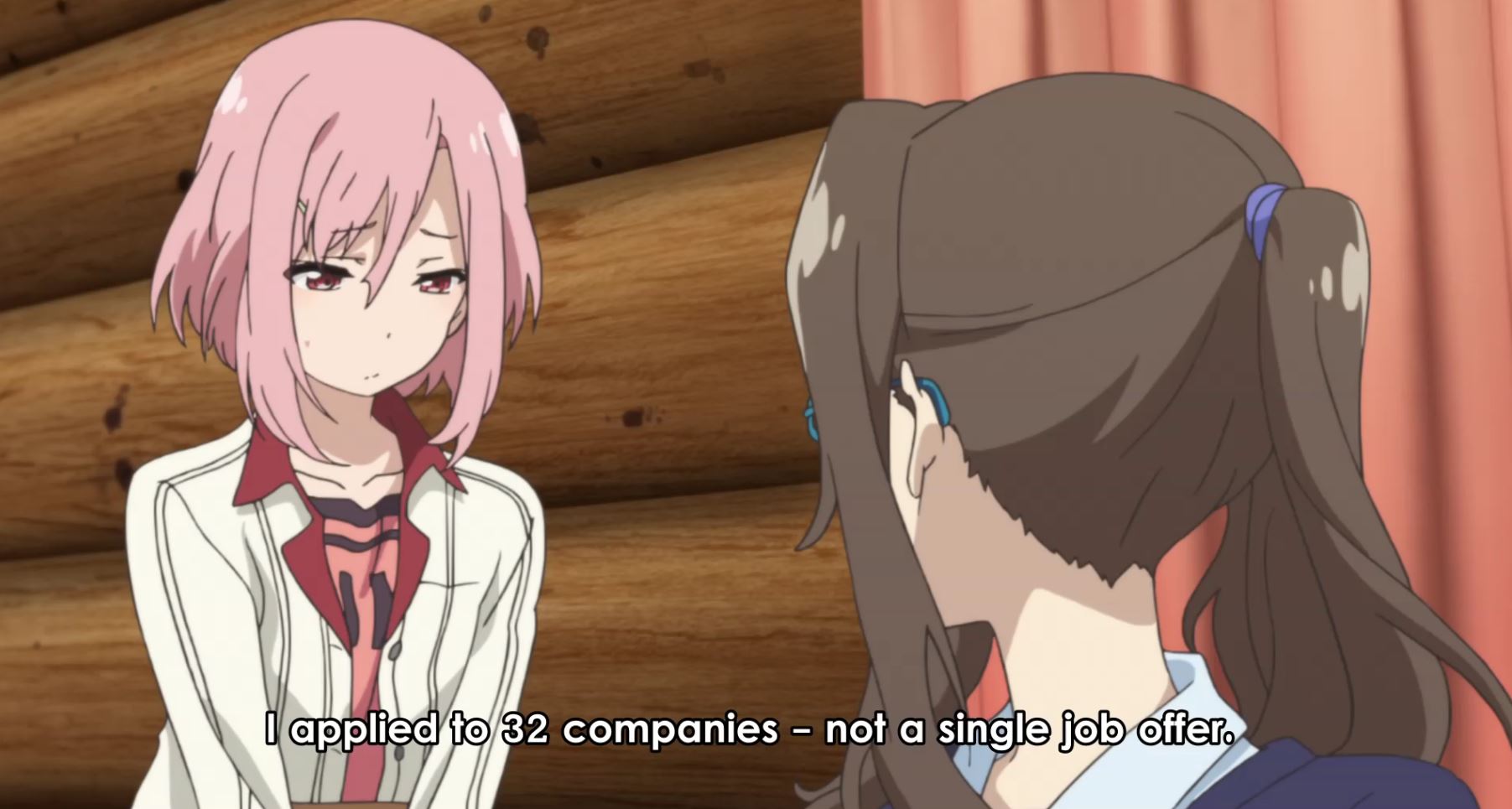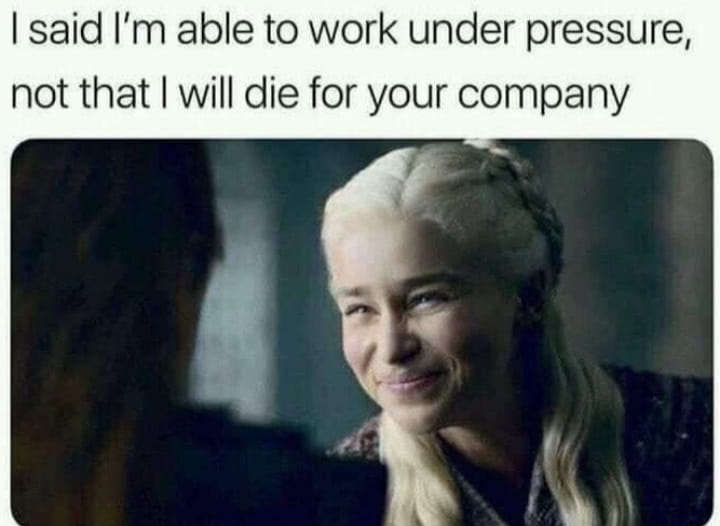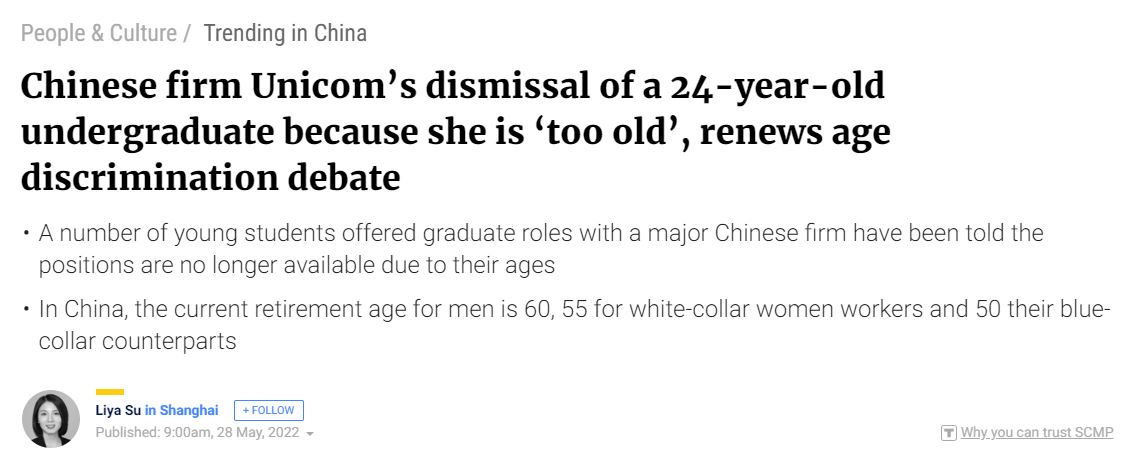Few days back I had dinner with a university undergraduate, who have 2 more years to go before graduation. He mentioned that he was very lost as to what to do and felt that he was incapable of doing a full time job well. I gave advice to him based on my experience, and it was somehow like those kind of situation where if you meet your 20 year old self, what would you say to him or her? Because I had gone through exactly what he is going through now many years back.
First I told him one of the things he should do during university, that is to get internships during his 3-month semester holidays, because even though one may not know what to do in the future, the internships give you some sort of a work experience and lets you explore the working world. Different from a part-time job, an internship in a proper company is like a newbie tutorial in the working world. While you may not find out what you want, you may also get an idea of what you do not want and knowing what to expect at work in the process. He said he did get internships, which pleasantly surprised me, because I did not do so. I wanted to clear my university debt as quickly as possible and did a lot of part time work, mainly tuition where the money was good but not something I would make a career. He was on a scholarship so money matters was not that much of a concern as it was with me.
Not many people know what they want to do in life during university days. Even though we may have part-time jobs, it is ultimately still different from working for real in a full-time job. Unless one is already in a very specific sector such as medicine or dentistry, where every graduate knows where they will go after that, many of the broader courses like engineering and mathematics, mass communication and foreign studies have seen people going a very diverse range of paths. For many of us, it is only after working for some time that people finally realise what they want in life and make a mid-career switch. Of course there are also many who get comfortable in the first job they got and remained in the sector till they retired.
Applying For Your First Job
I would say unless you have a very specific thing in mind, the first thing to do upon graduation, should you decide not to take a gap year, is to find a job as quickly as possible. If you already know what you want to do, then focus on that sector. If you do not know what you want to do for now, apply for every job without discrimination from the public sector to private sector, increasing your chances of getting a job in the soonest possible time.
You may think, I studied engineering, but this job is about finance! What I studied is not what is required! There is no need to worry about it. First, many of the jobs do not have similar background of studies as a hard requirement. Preferably in the same field of study yes, but not an absolute requirement. For example, people in the finance sector like graduates from the engineering background because engineering students are more logical and careful, suitable for finance work.
Secondly, even if you study in the same field as the job you apply, chances are you will not know anything about what you are going to do in the job. On job training is still required for almost all jobs, and you may realise often times what you learn only has marginal advantage over graduates of other fields, and with the proper training, all playing fields will be levelled. What this means is unless you are applying for a very niche job with required hard skills, there is no actual need to be so uptight about finding a job in your related field of study.
Thirdly, sometimes we see in the recruitment notice that a job requires the whole range of skill sets. We look at ourselves and see that we do not have all the skills they require. Do not let them hinder you. Unless it is a very critical requirement, if not all the skills listed on the recruitment notice are just what they would like to find in an ideal worker. There is no such thing as an ideal worker, and almost all candidates would fall short trying to meet every single requirement. As long as you meet a certain number of requirements, just apply. Your role is to apply, it is the HR manager’s job to filter through the candidates and determine who is suitable.

Job Search Window
There is always an optimal job search window in every country. I do not know much about other countries, so I will use Singapore as an example. In January and February very few will quit their job as the Chinese New Year holidays are usually in late January or February. People want to enjoy their holidays. March is where the civil service get paid their biggest bonus of the year – the performance bonus, which means any resignation will usually be done early April onwards. April will mark the start of the resignation and application of jobs across most sectors, which will last till end of August, hence if you want to start finding jobs, sending resumes from March onwards will be the best time.
The 3 big universities of Singapore will see their students graduate from May onwards, with the official graduation being July. This also means that the more pro-active students will start job hunting in April while concurrently preparing for their final examinations, while most will start job hunting about June, after their examinations are over and they have a bit of rest. The release of the new batch of job seekers will see the labour market injected with young and energetic cheap labour whom you have to fight with. By the end of August towards the September period, all job hunts would have more or less been over, and in the final quarter people will generally stick to their positions, waiting for the year end bonus as well as preparing for the year end festive holidays.
The labour situation in every country should be different, so one should take note of this job hunting window as you apply for a job. If you missed the window, it may very well cause you to not get a job till the next year, which I have seen it happen before.

Getting Your First Job
Grab the first job offer that comes with a reasonable salary first. Do not take offers from companies who lowball the salary though. There were some twisted theories which also state that if your first job offers you a salary on the low but still reasonable side, you should reject it and continue searching until you find one with a satisfactory salary. Reason being your first job’s salary will decide your next job’s. If you have a $3000 per month salary now, your next job may just offer you a $3500 job. But if you have a $4000 monthly salary for the first job, in the second job you can negotiate for a $4500 salary. I would say while this logic may make some sort of sense on the surface, it is total nonsense. You get a job first, then continue to seek for a second job while at it. Nobody said you cannot quit within the first 3 months. While at your first job you will expand your network and get your precious work experience, you see and learn more things. Compared to the one still waiting for his perfect job, you are already more advanced than him. When it comes down to the interview, for the same salary, would a company prefer someone who have some job experience or none at all? Furthermore, I have seen people waiting for their perfect job, and 1 year after graduation they were still unemployed. You never know when will the next bus come if you miss this one.

Earn And Save As Much As You Can
While on your first job and still figuring out your future path, earn and save as much as you can. Most jobs are standard office hours, while some jobs have the shift system. If you are doing a standard office hour job, try to see if you are able to do a part time job which pays well, such as teaching tuition. You are still young, and you have the energy to work hard. If you are doing the shift system, certain jobs pays extra for night shift. For example, Micron pays 30% extra for night shift, and if you are able to do it, you will increase your salary by 30%. A word of caution though, not sleeping at night is detrimental to health over the long run. In my case when I talked to the undergraduate, I suggested that he joined Micron since he is in the engineering background as they pay well and there is the night shift system.
The earnings and savings you have in your younger years will come in handy in the longer term. With proper financial management, you will be able to slowly grow your savings. Note that proper financial management does not necessary mean you have to invest in the stock market. The stock market is not for everyone. It can be something as simple as putting 20% of your savings in crypto staking, 60% in a fixed deposit and 20% for liquidity. Personally at my age I keep 10% in crypto but when you are young your risk appetite can be higher. Note that when I say crypto staking, I do not mean buying Bitcoin and wait for it to appreciate. It is something safer such as getting USDT and earn the interests. Of course depending on the market, USDT interest rates fluctuates.
Once you have amassed a certain amount of savings, invest in something safe, such as properties. Properties invested can either be in your own country or in a foreign country. Properties need not necessarily be restricted to residential ones as well. To get a house, you can first pay for the deposit then the rest through loan instalments if the interest rate offered is good. If not, you may want to choose the type where the property is still in the process of building, giving you more time to save up. Once the property is up and ready, you will have one stream of income coming in, regardless of whether you work or not.
With more money, you are able to build multiple streams of income on top of your day time job. From property rental to crypto staking rewards, from stock market dividends (should you enter the stock market) to just simply fixed deposits in banks overseas, you are able to achieve some form of flexibility for yourself, ie you do not have to cling to your day time job desperately.
The flexibility you have will allow you to pursue what you like in the future. Many of us have dreams which are not practical. I would love to be an author and write storybooks for people to read. The undergraduate I was speaking to wishes to be a geologist, but knows that this line is not feasible. With the money you have earned and saved in your early years, if managed well, will allow you to have the option to quit your job and pursue your dreams and interests, even if it means a lower salary. But it will be ok for you, because you are now reaping off the rewards of your early years. Even if you have no plans to change job, having no financial burden will allow you to work at your job in peace, for you can afford not to give in to unreasonable demands at work. That is why, earn and save as much as you can.

Do Not Give In To Peer Pressure
When we come out to work and earn money, there will be peer pressure regarding our material possessions. More than once my subordinates asked why I did not buy a car when everyone else has one. I replied that I do not need it. I do not wear expensive watches, I do not stay in condominiums but opted to stay in cheaper houses. I do not go to expensive restaurants often. It is simply because these are not valuable to me. What is valuable to me is the future rewards of my current sacrifice. While slowly accumulating your resources, the peer pressure will be something you will have to deal with. If you do not place much emphasis on how others look at you, then it will be much easier for you. If not, you might be tempted to spend and get the same material goods as others, to show off your earning power etc, slowing down your progress in savings.

Understand The Nature Of Your Job
Not all jobs are created equal. Some jobs get more valuable as they grow older, such as being a doctor. Everyone would want an old doctor to perform a surgery rather than a fresh graduate. Some jobs get more worthless as you get older, such as a soldier or police. Understand which category your job belongs to. If you are just a general physical labourer or general administrative worker, then you definitely belong to the category of being more worthless as you get older. That is simply because it gets more expensive to hire you, and by firing you they can hire 2 more fresh graduate. Do not get the wrong impression that just because you work in some big bank or multi-national company (MNC), that you are not a general administrative worker. If your job can be done by anyone, then no matter how high you sit, you are still a general administrative worker.
If your job is the type that gets more worthless as you grow older, then while in your job you will need to start thinking of an exit plan. An exit plan does not necessarily mean getting out of the job in the near future. An exit plan could be executed decades down the road. For example, my job gets more worthless as I age, so here I am planning for my exit plan, doing financial management and creating more sources of income. This is so that one day 20 years later when I am no longer needed by the job, I will be able to survive well after that. Using real life examples, we see many US military veterans becoming homeless. But we can be pretty sure they are paid quite decently during their years of service. But when they outlived their usefulness and no longer had a job, they have no skills to get other forms of work, hence having no income and becoming homeless.
Be More Confident In Yourself
When I was still a student, I had the impression that the working adults are impressive. I cannot see myself being capable enough to work. I thought work was a very difficult thing and often worried what would happen to me if I did not meet expectations. While it probably is the case that we do not start out perfect, we are not that bad some times. For my case I still made stupid mistakes about 8 months into my very first job, and my boss had been merciless in his scolding. My first boss was a toxic boss who gaslight me every time, but I do admit I had my fair share of stupid mistakes. 6 months into the job, my teammate who came in 2 months after me lamented one day that she was proving to the boss everyday that hiring her was a mistake. Yet despite the mistakes, as long as we work hard and work seriously, very soon we will get used to the working world.
Yet despite this, I thought I should correct the misconception that many students have that the working adults are awesome and can accomplish many things. No, in reality many of the working adults are simply parasites who do nothing but push work around and leech on the companies and their teammates. There are certainly many capable working adults, but just as many or even more are incapable people who simply cannot do things right. It is one of the frustrations at work we have discussed earlier. Quite a few of the students I know are capable people, who knows how to get things done and solve problems. The undergraduate I was speaking to was one of these people. I know because he has worked part-time for me. I told him that he is not that bad and he should be more confident of himself, because that is what I truly think.
However, if you are a student who has not a shred of working experience, I would encourage you to get at least some part-time job experience before stepping out into the society. There are things that you would learn only when working.

Study PhD
The undergraduate I was speaking to also told me he was thinking about going up all the way for a Masters and PhD too. Then the next question would be, will his PhD bring any value to his employer? As one goes further up the education path, the scope of one can do gets more and more narrow. If he is coming out to be a general worker, then why would the boss hire a PhD student if he can get another 2 fresh graduates at the same cost? Is there any value in him going for PhD? If you are a PhD graduate, chances are you will be working in a university or in the research arm of an MNC.
In Asian society, age is a critical factor when it comes to employment. When you are 30, your value in the labour market drops drastically, unlike Westerners where you can still apply for a job at 40 and still not get discriminated because of the age. This is due to the difference in culture. Western societies prioritise personal free time and often times do not encourage over time. In Asian society, over time and productivity are hailed as one of the traits of a good worker. If you are 30, you cannot work as much and long as a 20 year old, hence the age discrimination.

Hence in Asian society, if people want to study for PhD, they usually do not waste time in doing so. At 19 one enters university and graduate with a Bachelor’s at 23, study one year of Masters and graduate at 24, followed by 2 years of PhD and graduate by 26. In fact, if one could cramp the modules while studying for the Bachelor’s degree, the age of graduation would again be lowered. Graduating with a PhD at 26 or lower is common in Asian societies but not in the Western countries as a result of heavy competition.
But my advice is not to go for that route. Come out to work first, then see where the path leads you and what opportunities you have. I have seen before people being offered a promotion under the condition that he upgrades himself to a Master’s degree level or higher. During such times, your reward (promotion + salary increment) for the sacrifice (time and effort) will be clearer, compared to studying a PhD early on and have no idea what you can do after that. Furthermore, even without such an opportunity provided to you in your workplace, by working for some time, you get a better idea on what you want. Once you have determined your future path, then it is not too late to opt for further studies at that time. It is a much more feasible option of studying a PhD early on and limiting your career choices after graduation.
Conclusion
While these are not all the advices I would give to the young graduates, I thought these are the more important ones based on my own experience. If you can only remember 2 things from this article, it should firstly be to get a decent job as fast as you can, then job-hop if you need to. Secondly earn and save as much as you can in your early years. The rest should fall in place with time.
Showing 1 - 3 out of 3
Page 1 out of 1
| - | Shop Products | Price | |
|---|---|---|---|
|
|
$99,999.00
|
||
|
|
$1.00
|
||
|
|
Price range: $69.00 through $99.00
|


